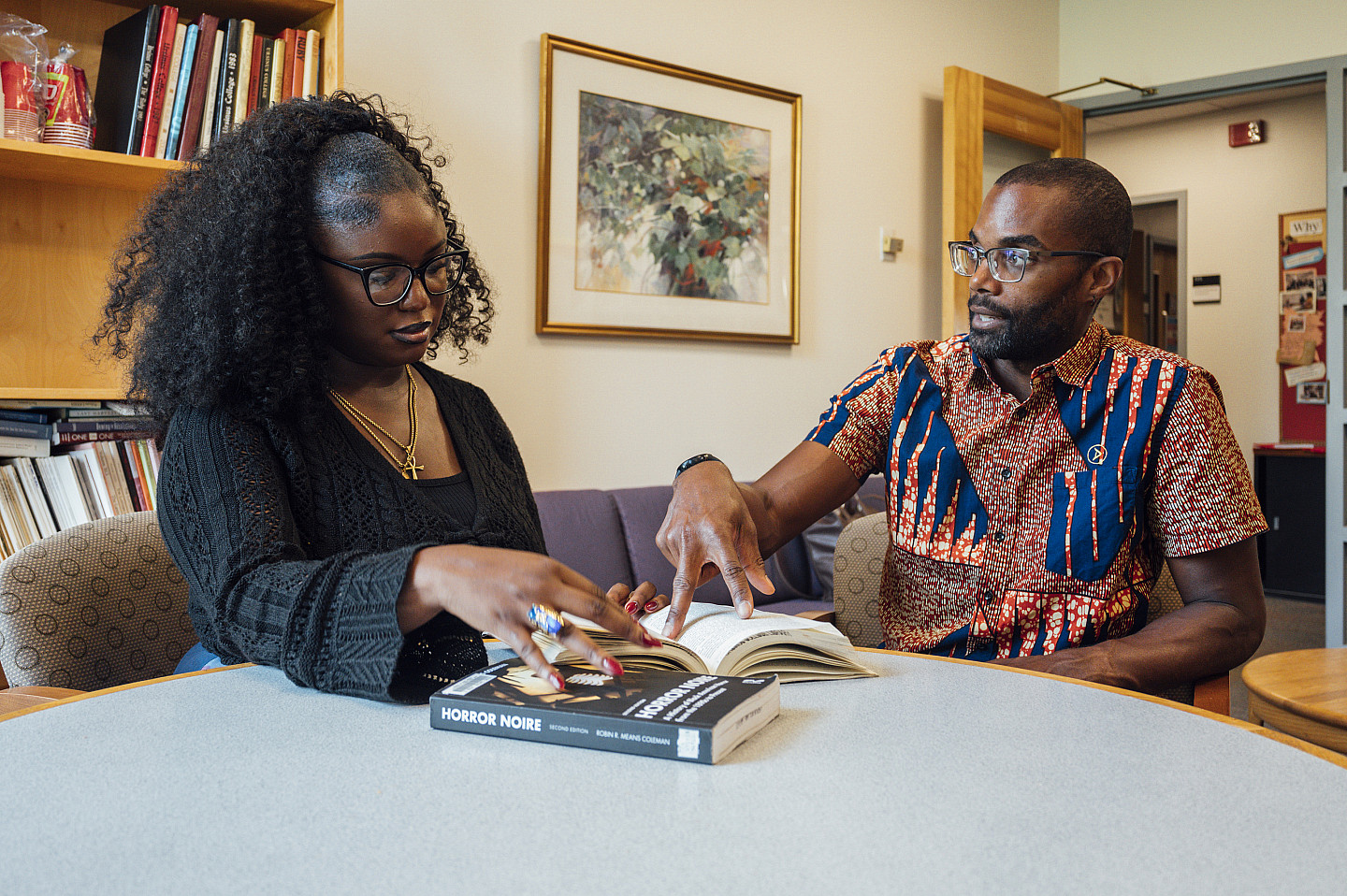
Onaci Selected for Virginia Humanities Fellowship to Expand his Scholarship
He received an HBCU Scholars Fellowship, which funds the humanities research of scholars affiliated with Virginia’s Historically Black Colleges and Universities
A new fellowship opportunity is allowing Associate Professor of History Edward Onaci to expand upon research first touched upon in his book, Free the Land.
Onaci was named a 2024-25 HBCU Scholar Fellow by Virginia Humanities—the state’s humanities council—one of two HBCU and six individual fellowships awarded in support of exceptional scholars and practitioners whose work promises to expand Virginia’s intellectual landscape. Onaci qualified for the fellowship as an alumnus of Virginia State University.
Onaci’s research project is titled, “Have You Ever Thought About Survival? Black Revolutionaries and a Martial Culture for Liberation.” It explores themes around the Second Amendment and specifically analyzes the interpretation that it is in place to protect the people against a tyrannical government.
The topic originally stems from Free the Land: The Republic of New Afrika and the Pursuit of a Black Nation State, which is about the New Afrikan Independence Movement of the 1960s and called for Louisiana, Mississippi, South Carolina, Georgia, and Alabama to be turned into an independent black nation-state.
The movement formed a provisional government in 1968 in accordance with international law, which included military force. Although Onaci acknowledged the militaristic aspects in his first book, he did not dive deeper into that specific topic. That led him to pursue it further through the new fellowship opportunity.
“The project starts with the question of, ‘What is this force and why do people feel the need to have an armed force supporting them?’” Onaci said.
He’s raising questions about leftists’ idea of self-defense and security culture, not only exploring themes around the Second Amendment and New Afrikan Independence Movement, but also other aspects of security like food, water, and shelter. Onaci is also analyzing how this has impacted different movements throughout history, such as the radical feminist movement.
“As a scholar and historian who studies social movements, and now the Second Amendment, I’m starting to see who gets left out of these conversations,” Onaci said.
The fellowship has provided Onaci with access to special archives for his work, most notably at the University of Virginia. He also gets the chance to travel around the U.S. to places like Brown University, the Walter P. Reuther Library in Detroit, and other historical archives.
“I’ve been identifying the archives that have a lot of primary source material to help me develop a deeper analysis of the people and ideas that have been overlooked, ignored, or deemed insignificant,” Onaci said.
Onaci said he expects to interact with Virginia Humanities and other scholars in different capacities during his fellowship. He’s also committed to producing a scholarly article on his research by the end of the fellowship in May.
“I’m confident this will be my next book project and that article with be one of the chapters in my new book,” Onaci said.
The Virginia HBCU Scholars Fellowship funds the humanities research of scholars affiliated with Virginia’s Historically Black Colleges and Universities (HBCUs) in service of Black, Indigenous and People of Color (BIPOC) heritage, stories, and communities. The fellowships are made possible by a major grant from the Dominion Energy Charitable Foundation built on their long record of support for HBCUs.
In an announcement on its website, Director of Grants and Fellowships at Virginia Humanities Adam Courville said, “Our fellows explore important ideas and stories that help us better understand our shared history and culture. This year’s recipients continue this tradition with projects that illuminate our past, celebrate our cultural richness, and engage our communities in meaningful dialogue.”